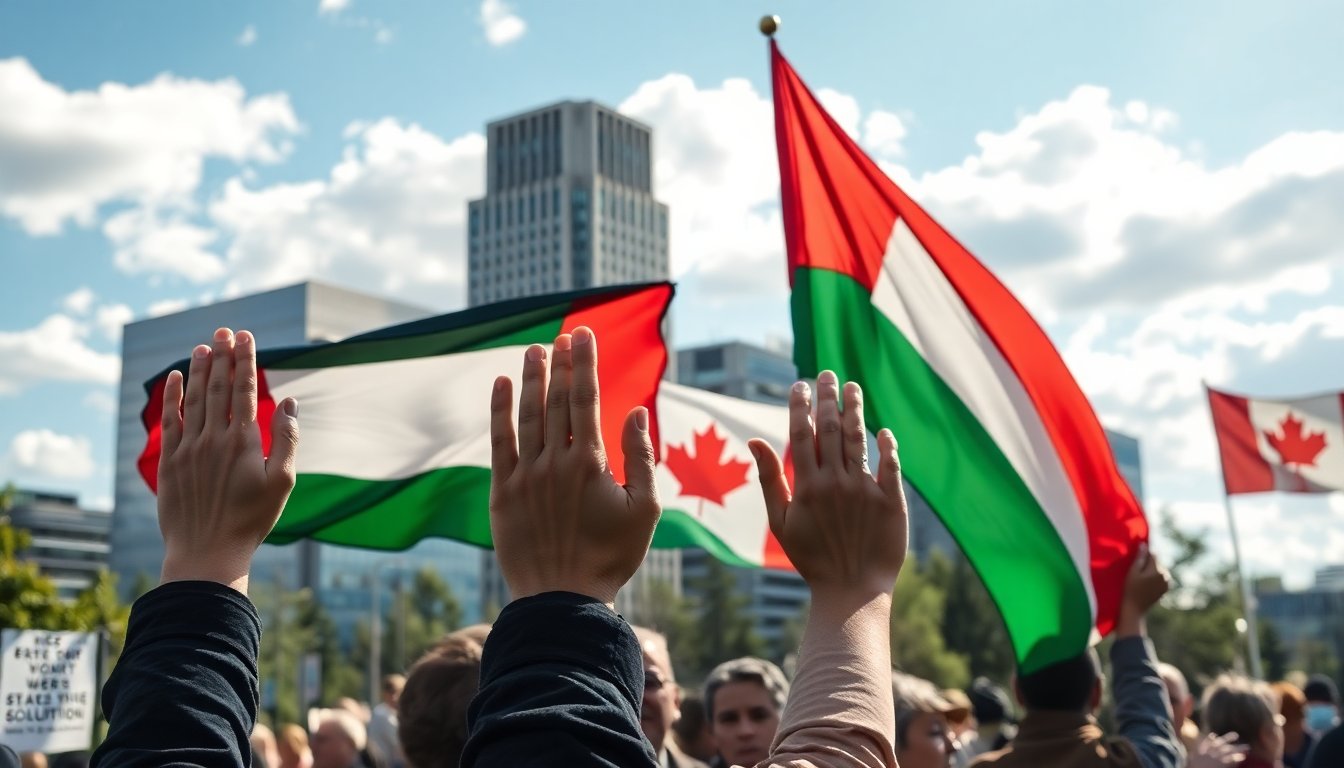Table of Contents
In a landmark decision, Canada has officially recognized the state of Palestine. This move, announced by Prime Minister Mark Carney’s office, aims to support the fragile hope for a two-state solution. The announcement comes amid escalating tensions in the Middle East, particularly following recent Hamas-led attacks on Israel and ongoing Israeli settlement expansions.
The Prime Minister’s Office (PMO) emphasized that this commitment is not merely symbolic. It is rooted in a long-standing belief that a negotiated settlement could lead to peace. However, the PMO also noted that this prospect faces significant challenges, particularly due to aggressive policies from the current Israeli government.
The Importance of the Two-State Solution
Historically, Canada has supported the two-state solution, envisioning independent states for both Israelis and Palestinians. Recent developments, however, have severely jeopardized this possibility. The recognition is intended to reignite discussions around peace and coexistence in a region plagued by conflict.
Challenges to Peace
The PMO pointed out that ongoing actions by the Israeli government, particularly support for the annexation of the occupied West Bank and restrictions on humanitarian aid, create significant barriers to peace. A statement from Carney’s office noted that “the current Israeli government is methodically working to prevent the establishment of a Palestinian state.” This reflects a stark shift in political dynamics, further complicating the peace process.
Moreover, the Prime Minister’s office condemned the actions of Hamas, stating that the group inflicts suffering not only on Israelis but also on Palestinians, hindering their pursuit of freedom and self-determination. The PMO stressed that Hamas does not represent the aspirations of the Palestinian people, who deserve the opportunity for a peaceful future.
International Responses and Collaborations
This announcement coincided with similar declarations from other countries, such as Australia and the United Kingdom, which also recognized Palestine as a state. British Prime Minister Keir Starmer articulated that this recognition helps keep the vision of peace alive, asserting that a secure Israel must coexist alongside a viable Palestinian state.
Canada’s Conditions for Recognition
Canada’s recognition comes with conditions aimed at ensuring the Palestinian Authority commits to governance reforms and democratic processes. Prime Minister Carney has stipulated that these reforms must include holding elections in 2026 without Hamas’s involvement and ensuring the demilitarization of Palestinian territories.
The PMO reiterated Canada’s dedication to supporting the Palestinian Authority in implementing these reforms, considered vital for establishing a sustainable governance framework. Bob Rae, the Canadian ambassador to the UN, emphasized that this decision is not impulsive but a strategic move to steer the dialogue toward a constructive resolution.
Domestic Implications and Reactions
While Canada’s decision has garnered international support, it has sparked significant backlash domestically. Israel’s Foreign Affairs Ministry criticized the recognition as rewarding terrorist organizations like Hamas and warned against allowing extremist ideologies to influence diplomatic policies.
Community leaders in Canada have expressed concern over recognizing Palestine without the Palestinian Authority meeting the outlined conditions. Avi Abraham Benlolo from the Abraham Global Peace Initiative voiced disappointment, signaling that this move could alienate segments of the Jewish community in Canada, who feel uneasy about the potential ramifications for Israel.
Future Prospects for Peace
The Prime Minister’s Office (PMO) emphasized that this commitment is not merely symbolic. It is rooted in a long-standing belief that a negotiated settlement could lead to peace. However, the PMO also noted that this prospect faces significant challenges, particularly due to aggressive policies from the current Israeli government.0
The Prime Minister’s Office (PMO) emphasized that this commitment is not merely symbolic. It is rooted in a long-standing belief that a negotiated settlement could lead to peace. However, the PMO also noted that this prospect faces significant challenges, particularly due to aggressive policies from the current Israeli government.1


